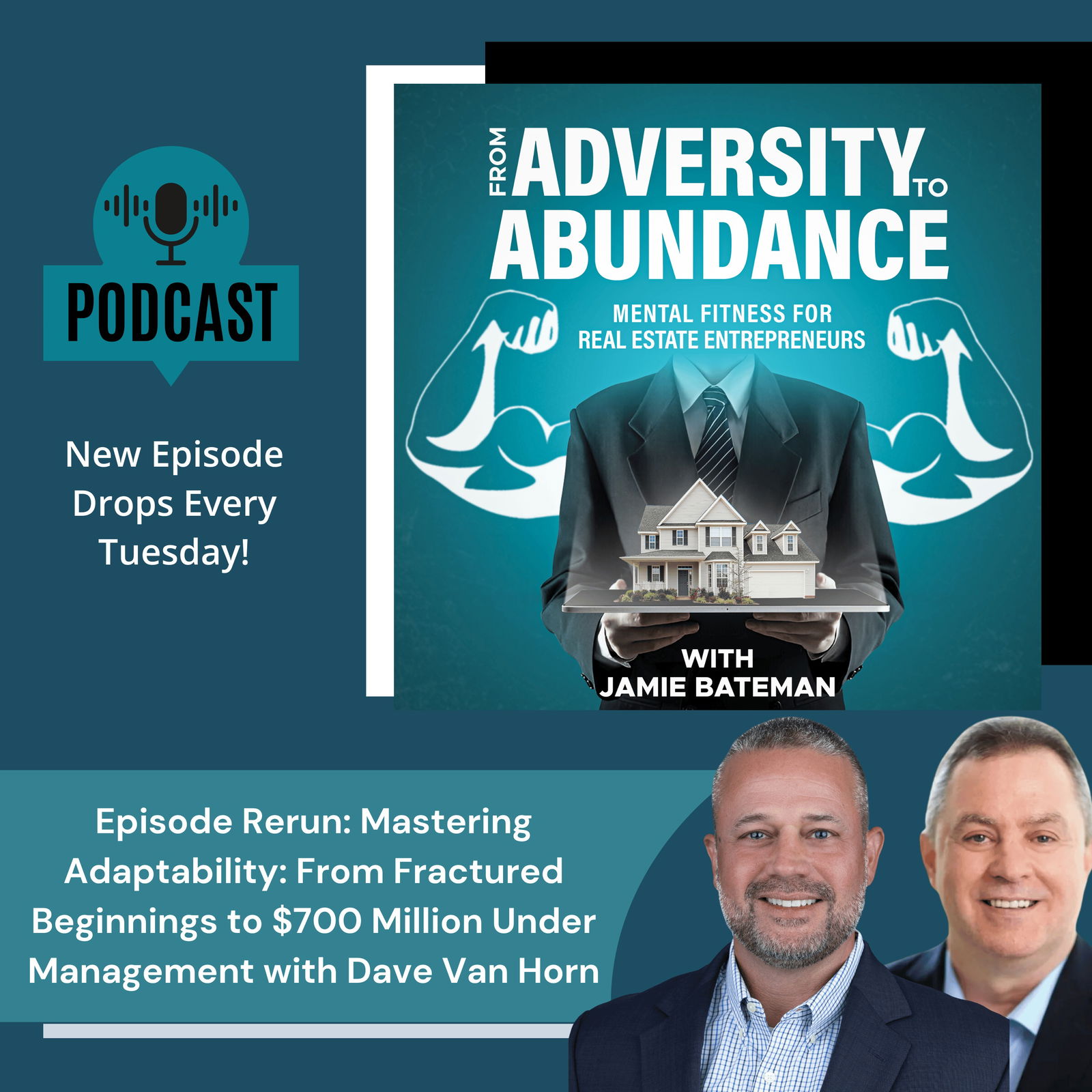In this powerful rerun episode of From Adversity to Abundance, we revisit the remarkable journey of Dave Van Horn, a seasoned real estate and mortgage note investor who turned adversity into entrepreneurial triumph. From growing up in a divided household and facing financial struggles to eventually managing over $700 million in assets at PPR Capital Management, Dave’s story is a masterclass in resilience, adaptability, and purpose-driven investing.
Dave is the Founder and Executive Chairman of PPR Capital Management, where he leads a firm specializing in residential and commercial note investing. His humble beginnings and relentless drive make his journey relatable and inspiring for anyone pursuing success in real estate or facing life’s inevitable challenges.
🎯 Key Topics Discussed:- Overcoming early life adversities, including family challenges and financial hardship
- The importance of building a diverse skill set for entrepreneurial success
- Navigating business adversity during tough financial periods
- The role of gratitude and giving back in building long-term impact
- Lessons learned from real estate, leadership, and personal development
- "You don’t have to travel 10,000 miles to find something beautiful—it might be in your own backyard.”
- “We have a lot of resources at our disposal. Think beyond profit—invest for impact.”
- Resilience and adaptability can be cultivated through hardship and used as a foundation for success
- Strategic relationships and mentorships are invaluable on the entrepreneurial journey
- True abundance is found not just in wealth, but in mindset and contribution
- Website:pprcapitalmgmt.com
- LinkedIn:linkedin.com/in/dave-van-horn
- BiggerPockets Profile:biggerpockets.com/users/davevanhorn
Services
Integrity Income Fund:
https://labradorlending.com/investors/passive-investors/
Labrador Mentorship:
labradorlending.com/investors/active-investors/
—
Haven Financial Services:
Learn more: jamie.myfinancialhaven.com/
—
Purchase Jamie’s Book: www.amazon.com/dp/B0CGTWJY1D?ref_=pe_3052080_397514860
—
Leave us a REVIEW: podcasts.apple.com/us/podcast/from-adversity-to-abundance/id1618672867?mt=2&ls=1
www.adversity2abundance.com/reviews/new/
Connect with Labrador Lending
Website: www.adversity2abundance.com
Facebook: https://www.facebook.com/labradorlending/
Instagram: https://www.instagram.com/labradorlendingllc/
LinkedIn https://www.linkedin.com/company/labrador-lending/?viewAsMember=true
Youtube: https://www.youtube.com/channel/UChYrpCUlqFYLy4HngRrmU9Q
Connect with Jamie Bateman
LinkedIn: www.linkedin.com/in/jamie-bateman-5359a811/
Twitter: twitter.com/batemanjames

